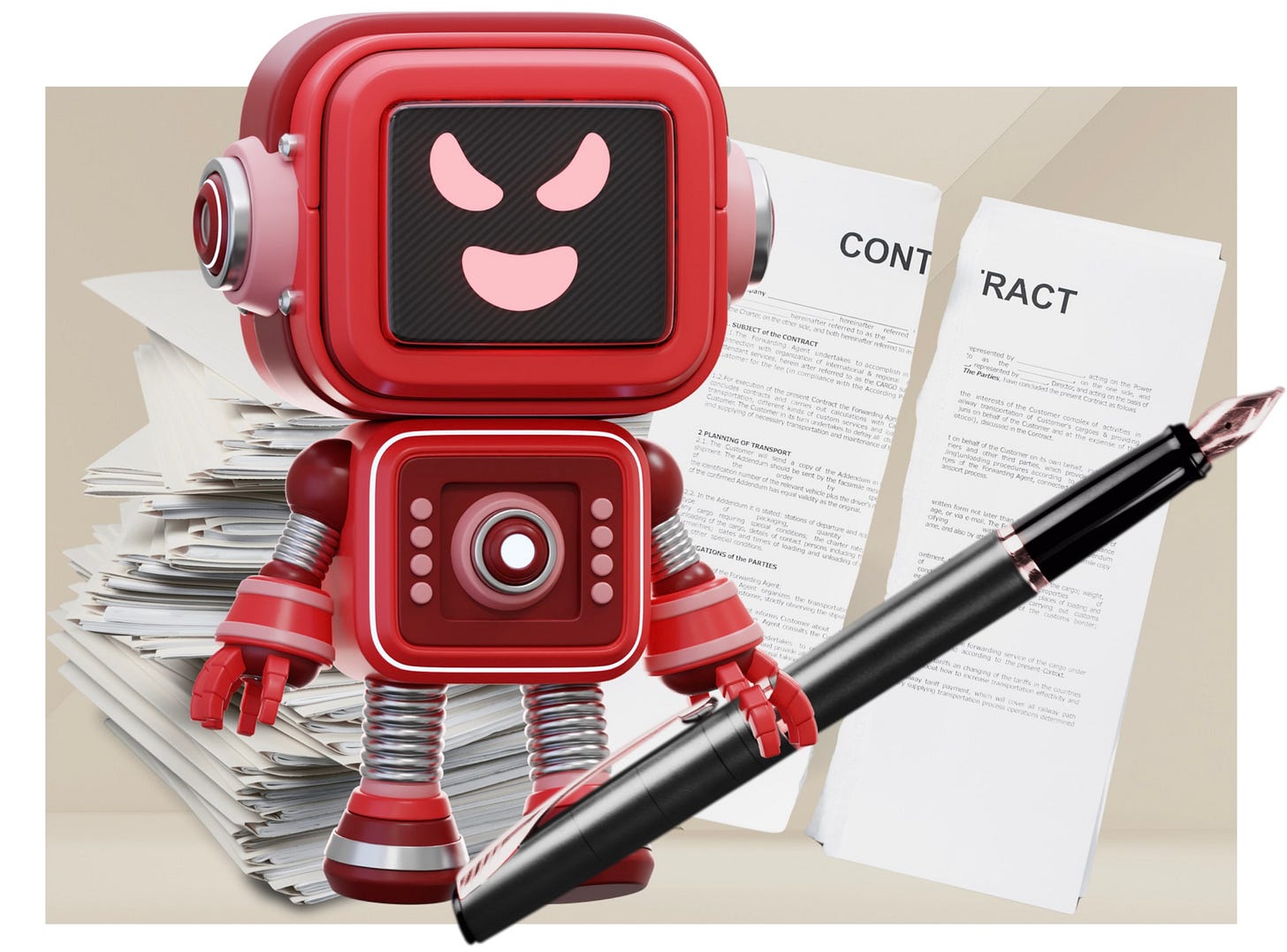AI Shocktember: Agents, Lawyers Reveal New Fight as Ground Suddenly Shifts
Rapid changes rock talent lawyers, agents and execs as big money pours in, Newsom legislates Hollywood's future, and studios get 'exactly what they wanted'
Ashley Cullins writes about agents, lawyers and top dealmakers in entertainment for paid subscribers (every other Tuesday). She recently covered how WME and CAA podcast agents are scoring nine-figure deals, L.A.’s production exodus and why cost-plus deals are dying. You can reach her at ashley@theankler.com
What a difference even a few months make in the amorphous, dynamic world of generative artificial intelligence.
When I spoke to Hollywood dealmakers back in April, they were taking stock of AI protections secured during the SAG-AFTRA and WGA strikes and lobbying for state and federal regulations that would address their clients’ lingering concerns. Less than six months later, some of those laws are now on the books and multiple Hollywood-tech partnerships are making headlines.
Meanwhile, in just the past two weeks alone, Meta unveiled that it has licensed the voices of Awkwafina, John Cena, Dame Judy Dench and dozens more stars for its AI chatbots, and Lionsgate announced a partnership with AI startup Runway that will create a proprietary version of its generative cinematic video model for the studio to play with using its IP library. (Financial terms haven’t been disclosed.) The most recent development on the AI front came on Sept. 29, when California Gov. Gavin Newsom vetoed the Safe and Secure Innovation for Frontier Artificial Intelligence Models Act. (He signed 17 other AI bills.) The moves stoke questions about how to navigate this rapidly changing landscape and what can be done to protect the people who work in Hollywood and their intellectual property.
“The Lionsgate deal was interesting because it was the first,” says Dan Neely, CEO of Vermillio, an AI platform that helps clients, including Sony and WME, protect and monetize their IP. He says it definitely won’t be the last. “There’s large amounts of capital available” in the tech world. In the first half of 2024 alone, AI startups raised $35.5 billion in funding, and then of course there’s big tech, which is investing more than that in building out their AI capabilities. (No need to belabor that Hollywood economics are currently in a different place.)
When I ask top talent lawyer Kevin Yorn, who works with the likes of Scarlett Johansson, Zoe Saldaña and Jason Sudeikis, what it all means, he says, “All these companies are after use cases,” pointing to ElevenLabs, which is working with studios and companies in the music business on voice generation, and OpenAI’s Sora (the AI video tool, which as my colleague Erik Barmack wrote last week, is mysteriously not yet publicly available). After all, AI companies have been under pressure for months to start to show both significant utility and revenues. “The plan for these companies is to have enterprise partners like studios, record companies,” Yorn says, “and then find great content creators to use their tech — like Jim Cameron, who has always been ahead of it and is working with Stability AI.” (Stability, which makes the popular AI model Stable Diffusion, announced on Sept. 24 that Cameron would join its board.)
The speed, the money, the new regulations: It all has lawyers, agents, and executives scanning the horizon to figure out the implications for Hollywood. “There are current use cases and then there are these future use cases that we just can’t predict,” says an agency exec. “From our perspective, anything that ensures that our clients are going to be compensated for their performance, whether it’s digital or actual, is really important . . . My hunch is that we’re going to need a lot more protection.”
In speaking with lawyers such as Yorn (of Yorn Levine) and Jackoway Austen’s Darren Trattner, as well as many more reps and executives, a power hierarchy emerges. At the top: the AI companies with the tech and money. Then the studios, which have the content the AI players crave, but are also fixated on using AI to cut costs (many fear that means jobs) and improve margins. And finally, talent, which finds itself with little power against either big tech or the studios.
Today I am going to look at the current state of play.
In this issue, you’ll learn:
The amount of money expected to flow into entertainment and media in 2025 from AI companies interested in Hollywood IP
How talent and their reps can get their share
The truth about studios’ AI use, as deals now include customary digital replica agreements
Why writers may be powerless against the studios in having their words used to train AI models
How the Lionsgate-Runway partnership might impact the actors, writers and directors behind its films
Which new digital replica law will help Hollywood — and which will have next to no impact
What to know about copyright on AI-created content
The deal Hollywood should mimic to get cut in on billions or even trillions of future value in AI
The race between state and federal lawmakers — and whose laws will supersede the others
This column is for paid subscribers only. Interested in a group sub for your team or company? Click here.
For full access and to continue reading all Ankler content, paid subscribers can click here.




